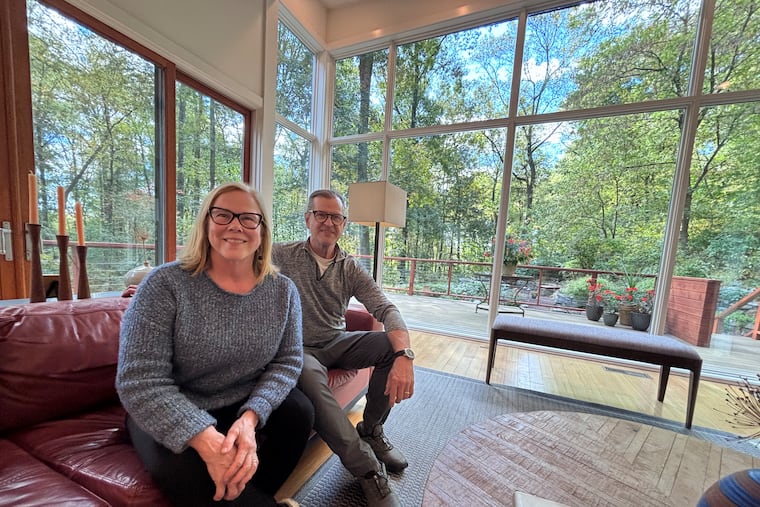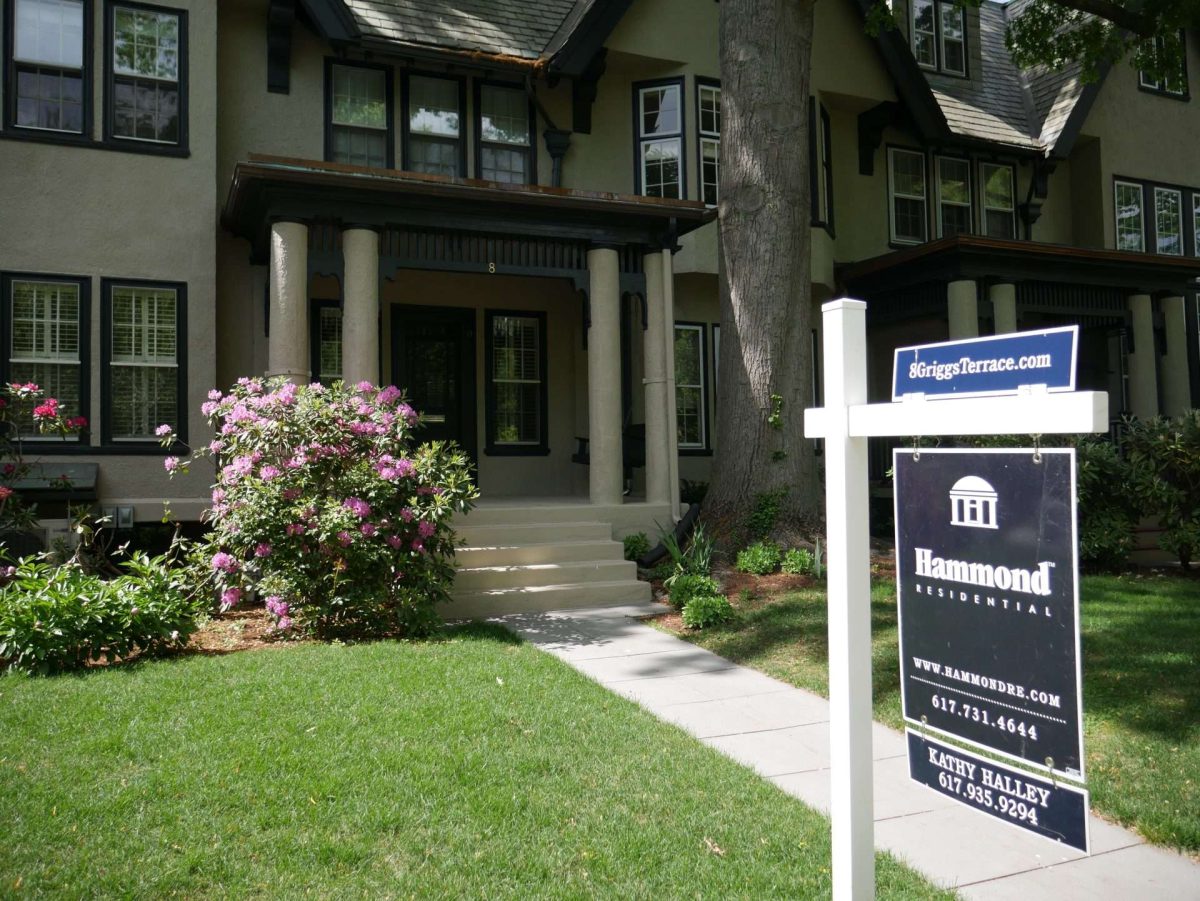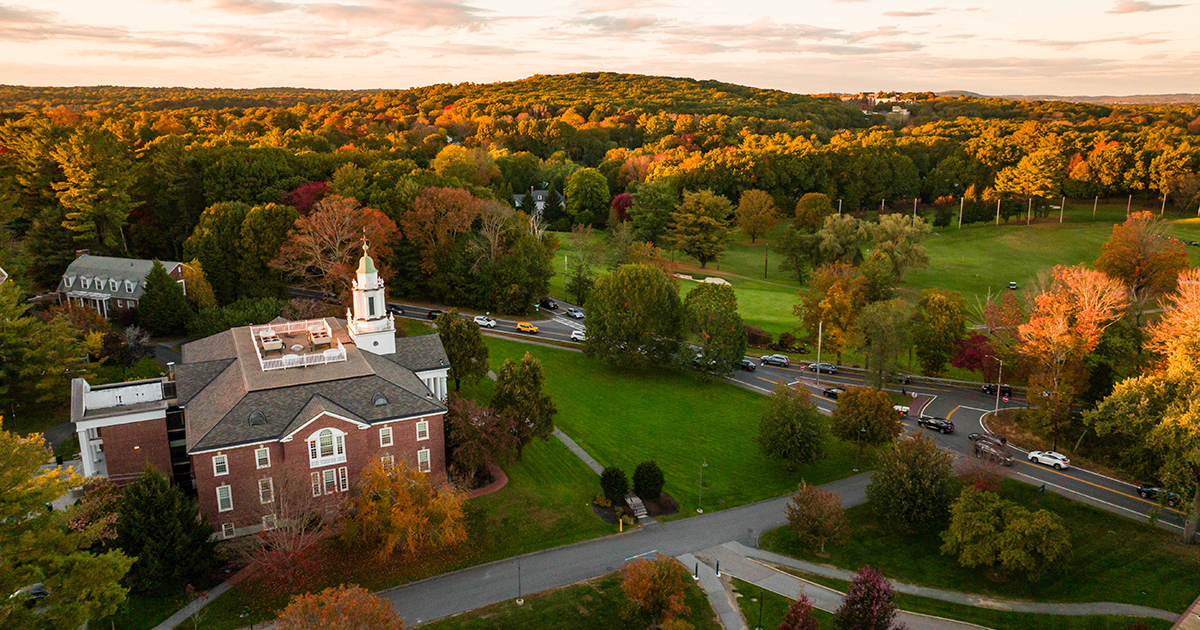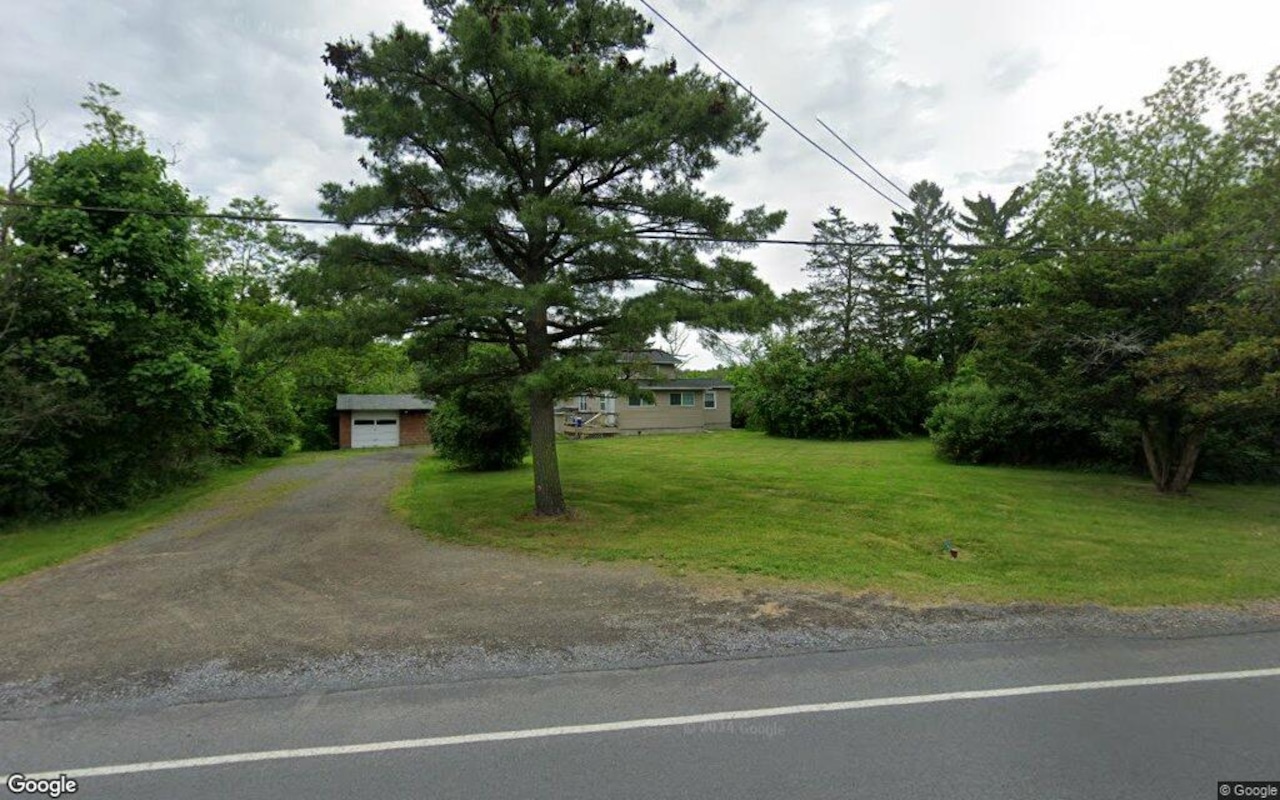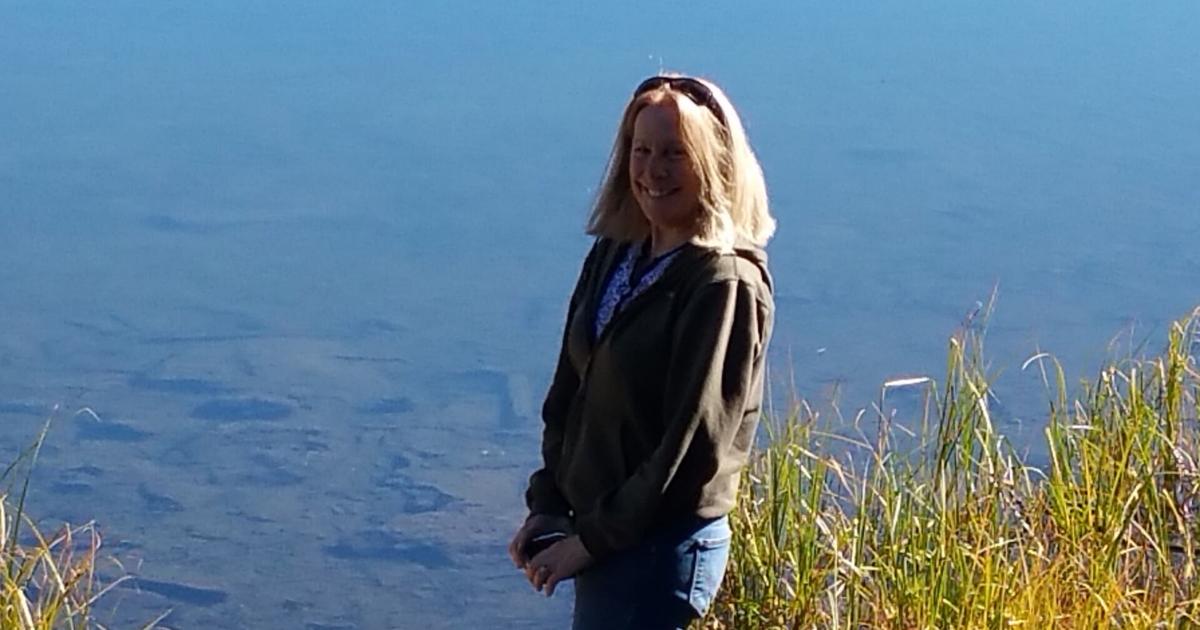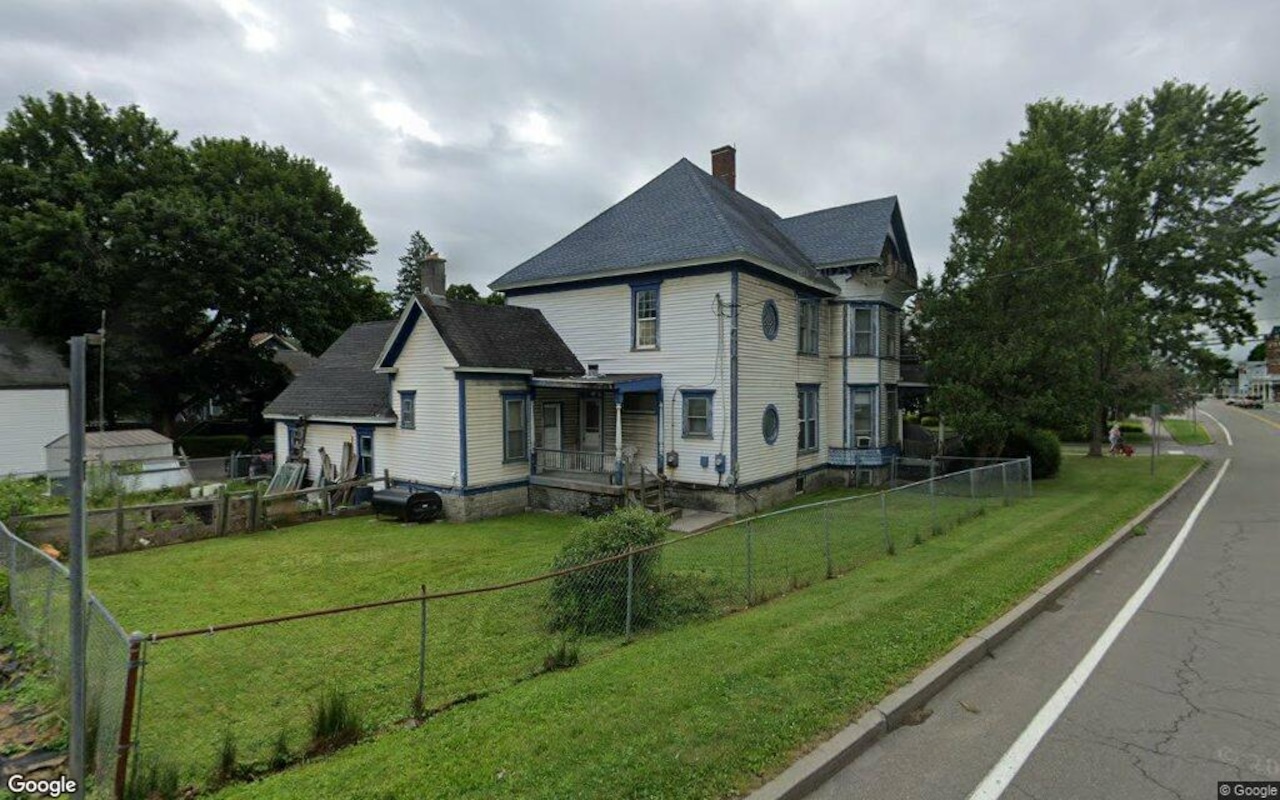*
*A Quiet Escape**
Pamela Anderson, a celebrated cookbook author, and her husband, Episcopal priest David Anderson, once called New Hope their home. In 2023 they sought a place where the bustle of the city could be left behind and purchased an 11‑acre wooded parcel in the modest Bucks County borough of Riegelsville. The Andersons now live on the property and have turned it into a thriving venue for yoga, sound baths, meditation, and corporate retreats that emphasize sustainable flooring. The revenue generated from these gatherings keeps the land well cared for and allows the couple to maintain the estate’s natural beauty.
**Copper House**
At the heart of the estate lies Copper House, an architectural retreat designed to blend seamlessly with the surrounding forest. Floor‑to‑ceiling windows frame 180° vistas of the trees, and Pamela describes the winter months as a “snow‑globe” experience, with the house’s interior bathed in soft, natural light. To enhance the getaway feel, the Andersons added gravel trails, grottos, and fire pits, creating a landscape that feels both wild and welcoming. The house’s open‑concept living area, with its exposed beams and reclaimed wood, invites guests to relax and reconnect with nature.
**Culinary Retreats**
The couple’s culinary talents shine during the retreats. Pamela cooks for guests, turning the events into a feast for the senses. A recent corporate gathering brought together a dozen architects and interior designers who spent an afternoon learning about eco‑friendly flooring options while enjoying the Andersons’ hospitality. The menu, featuring locally sourced ingredients and seasonal flavors, complements the retreat’s focus on sustainability and wellness, making each gathering a holistic experience that nourishes body, mind, and environment.
**Will Power Program**
In Philadelphia, a new initiative called the Will Power Program is helping low‑ and moderate‑income homeowners protect their properties. Run by two local nonprofits, the program has already assisted 1,000 families in drafting wills that clarify inheritance and prevent the tangled‑title problems that often arise when a deed isn’t transferred after a death. These titles can leave homeowners unable to use home equity, sell their property, or qualify for repair assistance, and they can even make properties targets for fraud. By ensuring a clear line of succession, the Will Power Program safeguards families’ homes and their financial futures. Participants receive legal guidance, educational workshops, and a streamlined process for creating a will that meets state requirements.
**Housing Landscape**
Meanwhile, the city’s housing landscape is shifting. Police officers and private contractors recently cleared encampments of people living in tents and makeshift shelters on the site where a 620‑unit apartment tower is slated to rise along the Delaware River. The clearing was part of a broader effort to prepare the area for development, and it sparked debate about the displacement of low‑income residents and the need for affordable housing solutions. The site, once a patch of informal housing, is now a blank canvas for a mixed‑use project that promises to bring new homes, retail space, and public amenities to the waterfront.
**Land Bank Reshuffle**
Mayor Cherelle L. Parker has also reshuffled the Philadelphia Land Bank board, a move aimed at accelerating the construction of new homes. The Land Bank, which manages the city’s publicly owned land, will now focus on fast‑tracking projects that meet community needs and promote equitable development. The new board composition includes representatives from affordable‑housing advocates, environmental groups, and neighborhood associations, ensuring that future projects reflect a broader range of voices and priorities.
**Church to Brewery**
In a separate initiative, a once‑crumbling church in Point Breeze is being preserved and repurposed as a brewery and community space, preserving a historic landmark while giving it new life. The building’s soaring nave and stained‑glass windows will serve as a backdrop for a craft‑beer taproom, a community kitchen, and event space. The project, funded through a mix of public grants and private investment, aims to create a vibrant gathering place that honors the church’s heritage while fostering local entrepreneurship and cultural exchange.
**Iron Hill Bankruptcy**
Iron Hill’s bankruptcy has left significant gaps in suburban shopping centers and downtown walkability. The former mall, once a bustling retail hub, now sits vacant, its anchor stores shuttered and its parking lots overgrown. The closure has reduced foot traffic to nearby businesses, increased traffic congestion, and diminished the sense of community in the surrounding neighborhoods. Local officials are exploring redevelopment options that could transform the site into mixed‑use housing, green space, and community facilities, but the process is slow and fraught with financial and logistical challenges.
**Polish American Cultural Center**
The Polish American Cultural Center, which had operated in a taxpayer‑funded building in Society Hill for nearly 40 years, was evicted by the city. The center’s removal has left a void in the cultural landscape of Philadelphia, depriving residents of a space that hosted language classes, cultural festivals, and community gatherings. The eviction sparked protests from Polish‑American groups and raised questions about the city’s commitment to preserving cultural institutions and supporting minority communities.
**Real‑Estate Highlights**
Real‑estate highlights in the current issue include a $795,000, three‑bedroom home in Graduate Hospital that was redesigned by its architects, and a nearly $2 million property in Chester County featuring custom woodwork by a renowned Main Line architect. The Graduate Hospital listing showcases a modern, open‑concept layout with high‑ceiling ceilings and large windows that flood the space with natural light. The Chester County home boasts hand‑crafted timber beams, a custom fireplace, and a master suite that offers panoramic views of the surrounding countryside. Both listings illustrate the blend of historic charm and contemporary luxury that appeals to today’s discerning buyers.
**South Philly Home Tour**
In South Philadelphia, Danielle Abrams and her husband Jonah chose to renovate their two‑story rowhouse rather than move to the suburbs. Their upgrades included a redesigned bathroom with a freestanding tub, a multifunctional shelf‑railing that doubles as a storage space for their daughter’s books and toys, and a kitchen feature that Abrams proudly highlights—a custom island with a built‑in wine rack and a pull‑out pantry. The couple’s story reflects a growing trend of families investing in their existing homes to create a comfortable, family‑friendly environment that meets modern needs while preserving the neighborhood’s character.
**Photo Quiz**
Readers were also invited to participate in a photo quiz, challenging them to identify a statue atop the Philadelphia Museum of Art (now referred to as the Philadelphia Art Museum). A handful of respondents correctly identified the location, and their memories of the spot were featured in the newsletter. The quiz, which showcased a close‑up of the statue’s intricate details, encouraged readers to reflect on the city’s iconic landmarks and the stories they hold.
**Happy Places Map**
A recent survey asked Inquirer readers to name their happiest place in Philadelphia, inspired by a Drexel University professor’s project that mapped residents’ favorite spots. The paper compiled a map of 20 locations based on reader responses, offering a glimpse into the city’s most cherished neighborhoods and landmarks. The map highlights parks, cafés, historic districts, and community centers, illustrating how diverse experiences shape residents’ sense of belonging and joy.
**Contributions Terms**
All contributions to the newsletter—written, visual, or audio—are governed by The Inquirer’s Terms of Use, including the grant of rights outlined in Section 10. Contributors agree that their content may be used, reproduced, and distributed by the publication in any medium, and that they retain no ownership over the final product.
